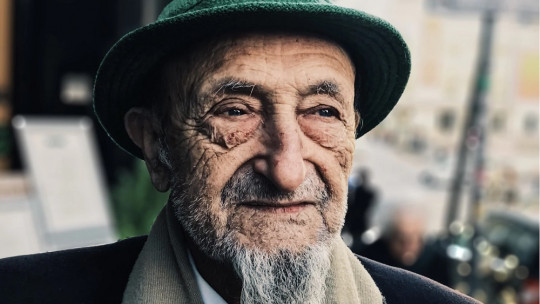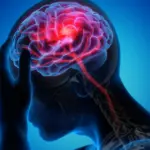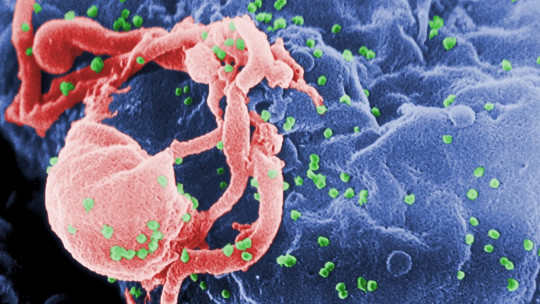Dementias are neurodegenerative disorders of generally organic origin that are characterized by the progressive loss of mental faculties generated by the degeneration of neuronal tissue.
Although these are chronic, progressive and generally irreversible disorders, different treatments and therapies have been developed that allow the process to be slowed and improve the autonomy and functionality of the person on a daily basis. Some of them are pharmacological, while others are part of non-pharmacological therapies or treatments for dementia Do these treatments work? Throughout this article we are going to briefly reflect on it.
What are non-pharmacological therapies?
Non-pharmacological therapies are called any set of techniques, strategies and treatments dedicated to the improvement or overcoming of a disorder or disease without resorting to the use of pharmacological elements during its application The element of these therapies that contribute to the patient’s improvement is the interaction between professional and patient and the different techniques and strategies used by the former.
These types of therapies are based on and extracted from scientific knowledge, requiring that they are validated and replicable and that they are shown to be capable of generating a significant advantage or benefit in the subject to which they are applied. It is important to keep in mind that although these therapies are non-pharmacological in themselves, they are often accompanied by a pharmacological treatment (whether this is the main treatment or is used as a support system for the non-pharmacological treatment), each contributing to the success of the other. These types of treatments are not applied to everyone, since a diagnosis is required for start-up
In addition to theory, these interventions must take into account the values, beliefs and experiences of the patient and environment, these being fundamental elements when it comes to whether or not there is therapeutic success in the majority of cases in which they are applied.
Non-pharmacological therapies can be considered all those contributions of medicine that do not require chemical agents in the form of drugs (for example the ablation of parts of the body, dialysis, laser treatments), those of psychology (both clinical and health as in other areas) and other disciplines linked to the field of health such as occupational therapy, speech therapy or physiotherapy
It is possible to apply them to a large number of areas, disorders and alterations, ranging from the application of adjuvant treatments with pharmacology in the case of chronic diseases such as diabetes to the application of psychological therapy in different mental disorders or the recovery of functions of a subject after suffering brain injuries.
Non-pharmacological treatment of dementia
One of the areas of application where non-pharmacological treatments are used, and in fact one of the most common, is in the treatment of dementia. Dementias are the set of alterations generated by neurodegenerative diseases. usually incurable, progressive and chronic in which the subject loses one or more mental faculties over time.
We are faced with disorders in which there is no curative medical treatment, interventions focusing on alleviating symptoms and delaying the loss of functions while trying to improve the functioning and autonomy of the subject by providing different strategies and trying to recover, optimize or compensate for the lost functions. In this ambit There are some drugs that slow the progression of the disorder (for example, in the case of Alzheimer’s, tacrine and/or donepezil are used), but non-pharmacological therapies are generally much better known and useful.
In general, non-pharmacological therapies in the treatment of dementia focus on seeking an improvement in the patient’s quality of life and their capacity for autonomy, a preservation of mental functions for as long as possible, an experience as long as possible. least traumatic and most positive possible of the disorder, the management of fears, doubts and feelings of the patient and his environment or the learning of strategies that allow optimizing the subject’s abilities and compensate for their deficits in such a way that they result in the lowest level of disability possible.
The application of this type of therapy usually requires the collaboration of a multidisciplinary team, with the presence of fields such as psychology, medicine, occupational therapy, speech therapy and physiotherapy as well as the social field.
Therapies or treatments most used in patients with dementia
There are a large number of possible non-pharmacological interventions that can be carried out in patients with dementia, one of the main objectives being their stimulation. Some of the therapies that have been classified as non-pharmacological treatment in these patients are the following.
1. Cognitive stimulation
One of the main and best known, cognitive stimulation aims to that the subject activates his mental faculties at a general level , through different activities, and their orientation is facilitated. Elements of memory and recall, association and information processing are often used for this purpose.
2. Cognitive training
Strengthening and learning of specific operations, elements and strategies to achieve improvement in a specific cognitive skill or area
3. Cognitive rehabilitation
Rehabilitation focuses on impaired or deteriorating processes and skills seeking its recovery, replacement, compensation and optimization.
4. Training in daily living skills
As dementia progresses, subjects who suffer from it will show increasing difficulty in carrying out basic activities for their daily lives, such as maintaining hygiene habits, using the telephone or even eating or going to the bathroom. That is why training in these skills allows strengthening the patient’s autonomy
5. Reminiscence Therapy
A type of therapy that is used in patients with dementia in order to help them remember and rework their experiences, strengthening their memory and making it easier to maintain a coherent life narrative. Photos, very relevant events or songs can be used, among other elements.
6. Animal Assisted Therapy
Both in dementia and in other mental disorders Bonding with animals and especially pets has been shown to have a beneficial effect in the mental and social functioning of the patient, while improving their motivation and affectivity. A wide variety of animals can be used, the use of dogs being very common.
7. Music therapy
Music therapy is one of the non-pharmacological treatments that are used, among other areas, in dementia. Music, whether listened to passively or generated by the patients themselves, can improve cognitive functions and usually serves as reinforcement. Following rhythms, spontaneous elaborations or recognition of songs and melodies and their characteristics are some of the activities proposed.
8. Psychotherapy
psychotherapy, generally cognitive-behavioral type but which can also come from other currents and schools such as systemic, can be useful not only in cognitive training but also in the treatment of emotional problems, stress management and mourning due to the loss of abilities or in training in skills such as social ones.
9. Phototherapy
light therapy It is generally used in people with depressive-type problems, especially seasonal affective disorder. It is based on exposure to different types and intensities of light with the aim of regulating circadian rhythms.
10. Relaxation
Application of relaxation techniques to relieve stress and anxiety through breathing and muscle tension.
11. Recreational therapy
Therapy based on the use of recreational activities and guided games to generate improvements in the patient’s abilities and emotional states.
12. Art therapy and expressive therapies
It is based on the development of artistic elements as a mechanism to strengthen the patient’s skills and emotional expression It can be included in dance therapy, theater, painting or sculpture.
13. Physical exercise and physiotherapy
Performing exercise and performing massages are important elements in order to keep the patient stimulated, preserve psychomotor skills and generate pleasant body sensations
14. Speech therapy
The ability to communicate is altered in a large number of dementias. Training and strengthening in this skill is very useful, helping patients to be able to express themselves correctly and improving your oral skills
15. Occupational therapy
Discipline in which different types of occupations or activities are used (including some of the above) in order to strengthen autonomy and quality of life. Both cognitive and physical aspects are worked on ensuring that the activities carried out are linked to those carried out in the subject’s daily life.
Oriented to different focuses
When we think about non-pharmacological treatment of dementia, we usually think of the set of strategies that are used without necessarily involving pharmacological agents on the patient to cause improvement, optimization or preservation of faculties for as long as possible.
However, it must be taken into account that although the identified patient is the main focus of attention, different techniques and non-pharmacological treatments are also applied to the rest of the elements linked to him: his family and environment and the team of professionals who care for him. .
Patient
As we have mentioned, the patient is the main focus of attention on which treatments, both non-pharmacological and pharmacological, are applied. The previous examples of therapies and treatments are applied in this one. It’s important to put attention on It is not only about preserving skills, but also about improving your quality of life as much as possible Their emotional needs should also be taken care of and their motivation tried to maintain.
Family/Environment
Although the patient is the one who suffers from dementia, so are the environment and the subject’s loved ones. They will experience a high level of suffering and doubts Generally, some of them will act as caregivers for the subject as he or she loses autonomy and capabilities, and they will have to face difficult and painful situations.
Among the most common interventions are psychoeducation, training in general and specific care, support and advice, psychotherapy (the presence of high levels of stress and in some cases emotional problems is common), attendance at support groups and use of services such as day centers or home help. Multicomponent programs that take into account elements from different branches and techniques are usually used, and in fact are the most effective.
Professionals
In some cases, subjects with dementia are left in the care of professionals or services to which non-pharmacological treatment can also be applied. This is what happens with people who offer their services as caregivers, internal or external, who They live with patients and help them in their daily lives or nursing homes We could also include medical and psychological professionals with frequent contact with this type of patient.
Training in the care of the subject and the search for worthy alternatives in serious cases that do not involve restriction of the person’s movements are some of the elements that are part of the elements that are taught. Psychotherapy and counseling may also be required both for those who are in contact with a patient and for those who face the diagnosis and treatment process (after all, they are facing a situation in which they see how a person is little by little losing faculties).
Do they work?
Very diverse studies have been carried out on the functioning and effectiveness of different therapies and treatments applied in the case of dementia. Although there is the complication that studies of this type of treatment are more complicated to carry out given the high number of variables involved and the differences in the possibility of maintaining certain types of intervention, The results are favorable to its application
Non-pharmacological treatment has been highly recommended, since it greatly improves the quality of life of the patient and their caregivers, the maintenance and improvement in basic activities of daily living and the maintenance of a more positive affective tone in comparison with the absence of this type of treatment.
In fact, It is considered first choice treatment since it generates an improvement in behavioral and cognitive aspects similar to that of personal pharmacology without its side effects. The most recommended is cognitive stimulation and advice preparation for caregivers (whether family or professionals).









